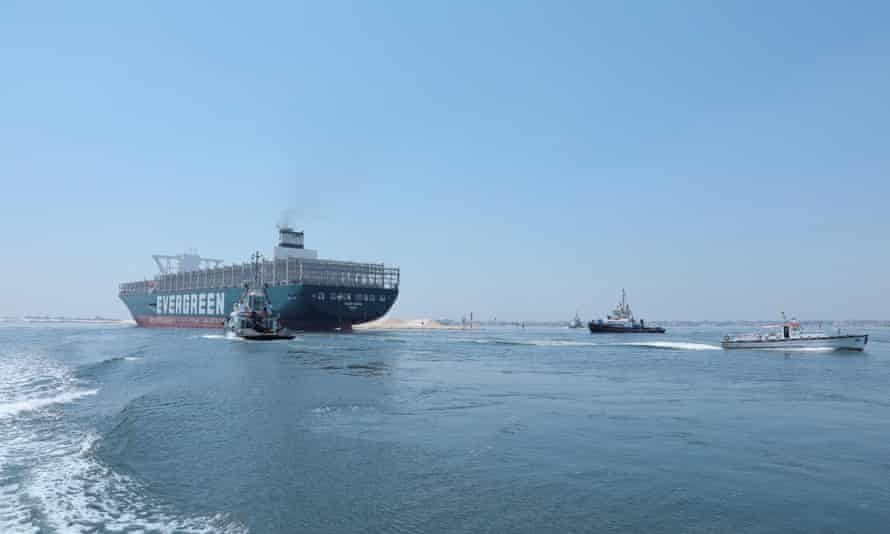Container ship Ever Given returns to Suez canal for another attempt
Vessel that caused global disruption when it got stuck is heading for the Red Sea again

First published on Fri 20 Aug 2021 08.57 EDT
In a rematch of the struggle that dominated global headlines earlier this year, the 400-metre, 220,000 tonne container ship that became lodged in the Suez canal for nearly a week, disrupting trade on a global scale, is having another go.
Several weeks after finally docking at the UK port of Felixstowe – after a months-long negotiation over who should bear the costs of blocking the shipping lane for six days in March – the vessel returned to Port Said, Egypt, on Thursday night.
On Friday, the Panamanian-flagged, Japanese-owned ship began its journey through the canal, accompanied by two tug boats, the state-owned newspaper Al-Ahram reported. Live ship-tracking showed the vessel successfully negotiating the early stages of the canal on its way toward the Red Sea.
The operation in March to free the ship from the canal caused a backlog that delayed the journeys of hundreds of ships, forcing some to take a much longer route around the southern tip of Africa.
A dispute over compensation resulted in the ship being held by Egyptian authorities for months, with its owner, Shoei Kisen Kaisha, arguing the canal authority was at fault for allowing the Ever Given to enter despite poor weather, and the canal authority demanding nearly a billion dollars to cover what it argued were its losses.
The Ever Given was released in July after the two sides reached an undisclosed deal, with the owner saying: “Our company … will continue to be a regular and loyal customer of the Suez canal.”
That appears to be the case as the ship makes its way through the canal with which it will be forever associated in infamy, despite the fact, according to Al-Ahram, it passed successfully through the Suez canal 22 times since its manufacture in 2018.
